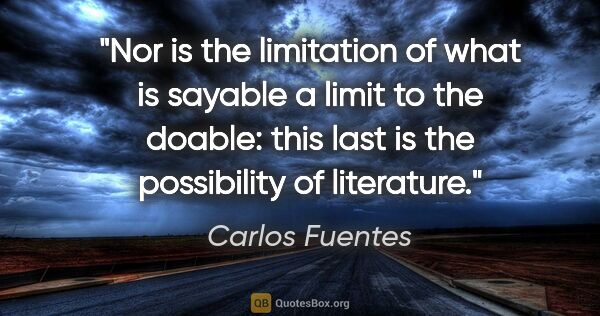Literature Quotes (page 14)
Teaching literature is teaching how to read. How to notice things in a text that a speed-reading culture is trained to disregard, overcome, edit out, or explain away; how to read what the language is doing, not guess what the author was thinking; how to take evidence from a page, not seek a reality to substitute for it.
Barbara Johnson

In his Comedy, Dante Alighieri names Virgil, with many tokens of respect, as his teacher, and yet, as Herr Meinhard remarks, makes such ill use of him: a clear proof that even in the days of Dante one praised the ancients without knowing why. This respect for poets one does not understand and yet wishes to equal is the source of the bad writing in our literature.
Georg C. Lichtenberg
exile is strangely compelling to think about but terrible to experience. It is the unhealable rift forced between a human being and a native place, between the self and its true home: its essential sadness can never be surmounted. And while it is true that literature and history contain heroic, romantic, glorious, even triumphant episodes in an exile’s life, these are no more than efforts meant to overcome the crippling sorrow of estrangement.
Edward Said
I think people are often quite unaware of their inner selves, their other selves, their imaginative selves, the selves that aren’t on show in the world. It’s something you grow out of from childhood onwards, losing possession of yourself, really. I think literature is one of the best ways back into that. You are hypnotized as soon as you get into a book that particularly works for you, whether it’s fiction or a poem. You find that your defenses drop, and as soon as that happens, an...
Jeanette Winterson


We are tied down, all our days and for the greater part of our days, to the commonplace. That is where contact with the great thinkers, great literature helps. In their company we are still in the ordinary world, but it is the ordinary world transfigured and seen through the eyes of wisdom and genius. And some of their genius becomes ours. . ." in The Great Conversation
Mortimer Adler